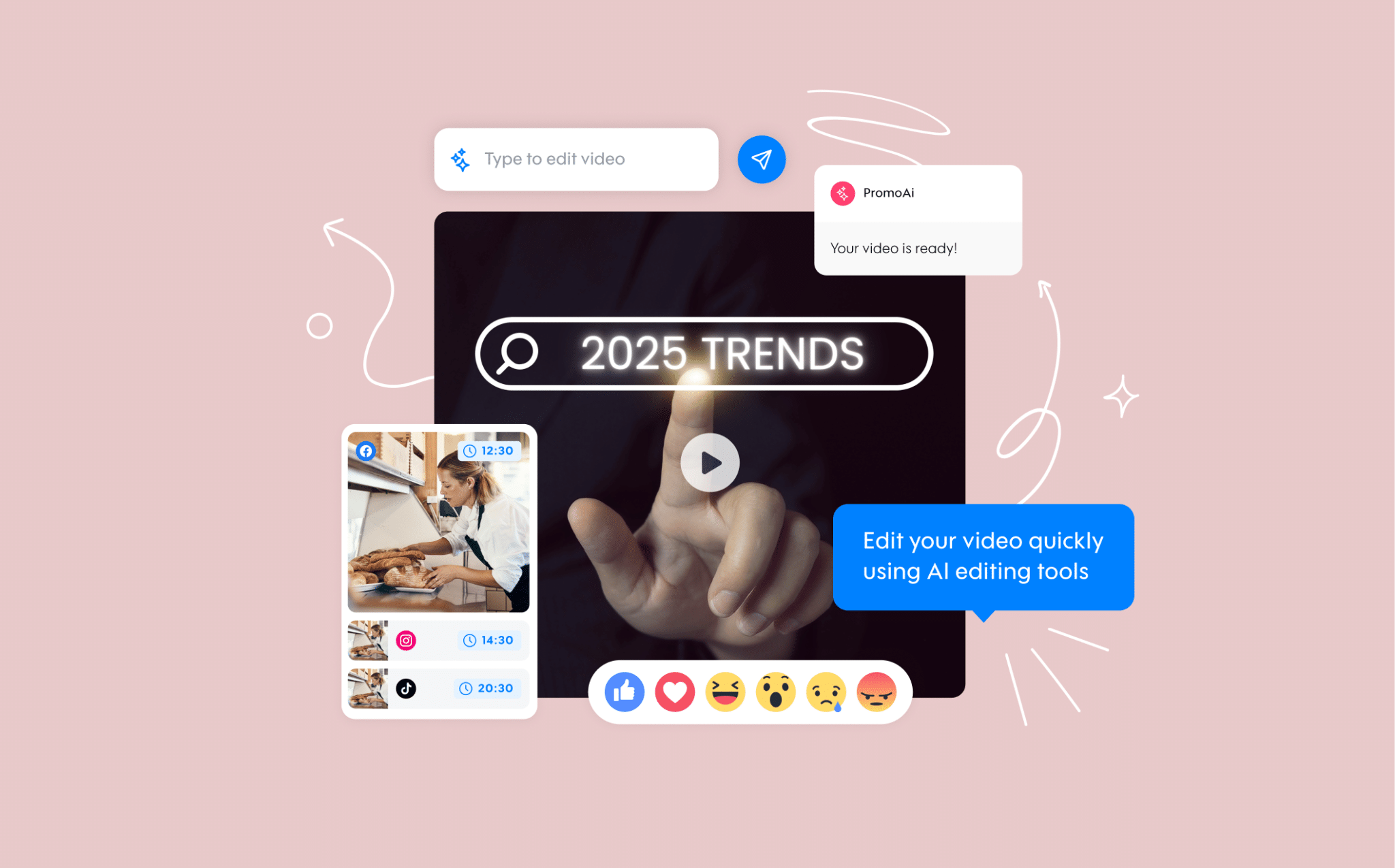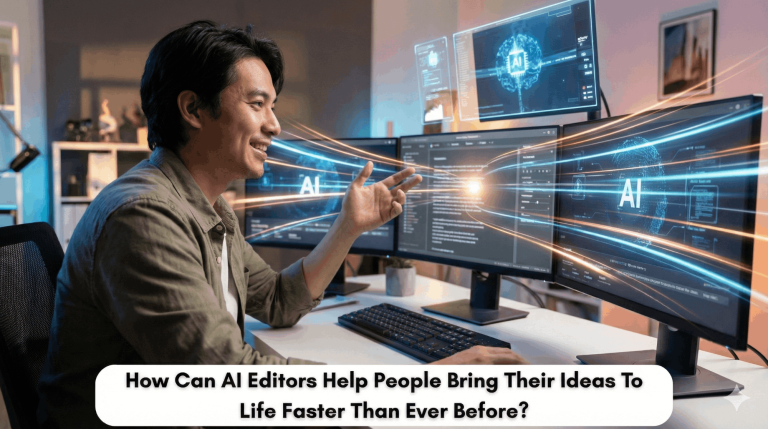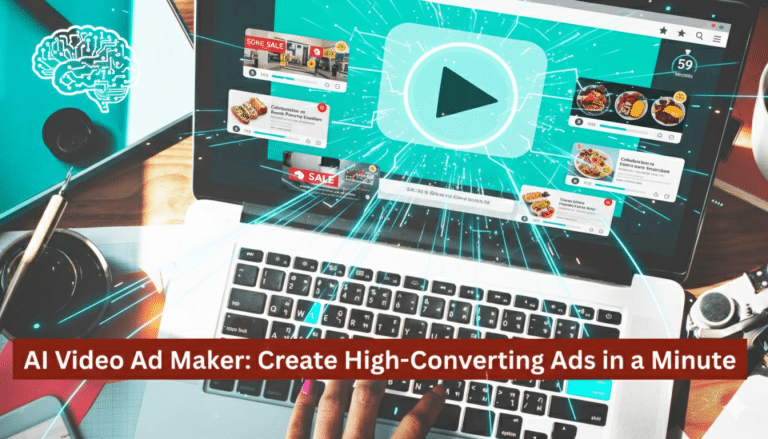
Ready for 2025? AI Trends That Will Redefine Your Small Business

AI is no longer reserved for tech giants or corporations with unlimited budgets. In 2025, small and medium-sized businesses will have more access than ever to the transformative power of AI. From automating routine tasks to creating hyper-personalized customer experiences, AI is rewriting the rules of business—and small businesses are finally in on the action.
This means that the same technology once exclusive to industry titans is now within reach, offering companies of any size a chance to operate smarter, faster, and more efficiently. With the right AI tools, small businesses can automate manual processes, reduce operating costs, and deliver personalized customer experiences that rival those of much larger competitors.
This blog will highlight the most impactful AI trends that small businesses should keep an eye out for in 2025 and beyond. From AI-driven content creation to autonomous customer support agents, we’ll show how these trends are opening up new opportunities for small businesses to drive growth and reduce costs.
Why does this matter? Because larger competitors aren’t slowing down. Big brands are already leveraging AI to operate at lightning speed and engage customers in ways that smaller companies might not be doing yet. But by staying ahead of these trends, Small businesses can level the playing field, outpace their local competitors, and create a better experience for their customers. The future of AI is here, and it’s small-business friendly.
AI Trends to Watch in 2025
Let’s take a look at the key AI trends shaping 2025 that small businesses should watch closely to stay ahead of the competition.
AI-Powered Agents Become Small Business Sidekicks
AI-powered agents are autonomous, AI-driven systems that can execute specific tasks without constant human supervision. Unlike traditional chatbots, which follow basic scripts, AI agents are far more sophisticated. They can learn, adapt, and handle complex tasks such as customer support, appointment scheduling, and even HR inquiries.
For small businesses that operate with limited resources, AI agents act like an extra set of hands. These agents operate 24/7, never take a break, and can manage a wide range of operational tasks that once required manual labor. While large corporations have been using AI agents for years, 2025 will mark the moment when small businesses gain full access to these advanced tools.
Imagine a boutique fitness studio using AI-powered agents for customer inquiries. Instead of requiring a staff member to answer every “How do I cancel my class?” message, an AI agent could handle it. By integrating with booking systems and CRMs, the AI agent could reschedule appointments, issue refunds, or send follow-up emails—all automatically.
This will offer small businesses benefits like:
- Reduced Admin Overload: By automating customer inquiries, payment processing, and HR-related questions, small business owners can spend less time on administrative tasks and more time focusing on growth.
- Faster Customer Response: Small businesses can match the responsiveness of Fortune 500 companies. With 70% of these corporations already using AI-driven Copilot agents, even smaller companies can now deliver comparable service speeds.
- Low-Cost Automation: Small businesses can avoid hiring full-time support teams by relying on AI agents. They work around the clock, answering customer questions instantly.
The bottom line: AI agents are like virtual employees—always on duty, highly efficient, and extremely low maintenance. As AI technology advances, smaller businesses will have access to affordable multi-agent systems that can handle a variety of operational tasks, from customer support to HR management, allowing you to focus on high-impact work while AI handles the rest.
Generative AI Gets Even Smarter (and Cheaper)
Generative AI refers to AI models that can create new content—like text, images, audio, and video—based on prompts or context. Tools like ChatGPT, DALL-E, and MidJourney have popularized this trend. But in 2025, generative AI is set to become faster, cheaper, and more industry-specific.
For years, only big brands had the resources to create high-quality branded content at scale. Now, generative AI allows small businesses to produce blog posts, product descriptions, ads, and social media visuals without hiring a design team. Small businesses can customize AI-generated content to fit their brand voice, saving thousands of dollars in creative costs.
For example, a small bakery can use a tool like PromoAI to create Instagram video ads that showcase its latest treats. The AI tool generates a voiceover script, selects engaging footage from Getty Images, and assembles everything into a polished, shareable ad—all in a matter of hours.
This will offer small businesses benefits like:
- DIY Content Creation: Instead of paying for ad agencies or designers, small businesses can generate blog posts, social media videos, and ad creatives in-house.
- Reduced Production Costs: Professional video production can cost $5,000 to $7,000 for a 2- to 5-minute video. AI tools like PromoAI allow small businesses to achieve the same quality for a fraction of the price.
- Faster Turnaround: No more waiting weeks for a production team. Content can be created, tested, and launched within hours.
The bottom line: Generative AI gives small businesses access to the creative power of an agency—without the fees. With the ability to generate video, graphics, and written content on demand, companies of any size can create high-impact campaigns in hours rather than weeks.
Search is Dead. Long Live AI-Driven Discovery.
AI is redefining how people search for information. Traditional search engines like Google and Bing are shifting to AI-generated answers, where users receive direct responses rather than lists of links. AI-driven discovery changes the rules of SEO and content marketing.
For small businesses, SEO has always been a key strategy for visibility. But as AI-driven answers replace link-based search results, small businesses must pivot their SEO strategies. Instead of optimizing for specific keywords, it’s now about creating contextually relevant content that AI can reference.
For example, when a customer asks an AI-powered search engine, “What’s the best local yoga studio near me?” the AI doesn’t just pull Google listings. It reviews local reviews, social media mentions, and business descriptions to offer a direct recommendation. To be featured, the yoga studio needs more than an SEO-optimized website—it needs glowing customer reviews.
This will offer small businesses benefits like:
- New SEO Rules: Ranking #1 on Google might not be as important if AI-generated answers bypass traditional search results.
- Dependence on Reviews: Customer reviews will become a core part of AI’s “decision-making” process, so positive feedback is critical.
- Content Adaptation: Small businesses will need to create content that is contextually relevant for AI to reference in search responses.
The bottom line: As AI-generated search replaces traditional SEO, small businesses must adapt. Focus on customer reviews, FAQs, and trust-building content to ensure your business appears in AI-driven search responses.
Personalized Customer Journeys Through AI-Driven Insights
AI-driven insights provide real-time analysis of customer behavior, allowing small businesses to personalize every customer interaction. This capability, once reserved for corporations with large data science teams, is now accessible to even small businesses.
Personalization increases customer loyalty, engagement, and sales. With AI-driven insights, small businesses can predict what customers need before they ask. Personalized recommendations, email offers, and product suggestions become more targeted and effective.
For example, an online boutique can use a tool like Klaviyo to predict which customers are most likely to make a purchase. Instead of sending one-size-fits-all emails, the boutique can send personalized offers to each customer based on purchase history.
This will offer small businesses benefits like:
- Smarter Marketing Automation: Email blasts are out; predictive segmentation is in. AI determines which customers need what message and when.
- Customer Loyalty: Personalized experiences drive loyalty. When customers feel “understood,” they stick with a brand.
- Reduced Churn: AI can predict when customers are likely to leave, giving small businesses a chance to re-engage them.
The bottom line: AI-driven insights are leveling the playing field, giving small businesses the tools to personalize customer journeys just like Amazon and Netflix do.
AI Will Power Sustainability (and Small Businesses Will Benefit)
AI-driven sustainability refers to the use of AI tools and technologies to reduce environmental impact, optimize resource consumption, and support ethical business practices. This includes smarter energy usage, water conservation in data centers, and more sustainable supply chain logistics.
As sustainability becomes a priority for consumers, regulators, and corporate supply chains, small and medium-sized businesses will be expected to follow suit. Larger corporations are already requiring their suppliers to meet environmental, social, and governance (ESG) standards, and small businesses that fail to keep up risk losing valuable partnerships and customers. AI provides the tools small businesses need to meet these standards while also reducing costs and improving operational efficiency.
For example, imagine a small food and beverage supplier working with a large supermarket chain. The chain begins requiring all suppliers to track and report on their carbon emissions. With AI-powered tools, the small supplier can monitor energy usage, track emissions, and generate detailed reports in compliance with the new requirements. This capability not only helps the business maintain its partnership but also uncovers new opportunities to reduce waste and cut costs.
This will offer small businesses benefits like:
- Access to Larger Markets: Many large corporations are now prioritizing sustainable suppliers as part of their ESG initiatives. Small busineses that adopt sustainable practices will have a competitive edge when bidding for contracts with these larger companies.
- Cost Savings: Energy efficiency isn’t just good for the planet—it’s good for the bottom line. AI-powered tools for energy optimization help small businesses reduce utility bills.
- Improved Brand Perception: Consumers care about sustainability—66% of shoppers are willing to pay more for eco-friendly brands. By adopting AI-driven sustainability measures, small businesses can position themselves as socially responsible brands, building trust and loyalty among eco-conscious customers.
The bottom line: Green isn’t just good for the planet—it’s good for business. Small businesses that leverage AI-driven sustainability tools will win partnerships, reduce costs, and stay compliant with ESG standards.
Privacy and AI Ethics Will Drive New Rules for Small Businesses
As AI continues to integrate into everyday business processes, regulations surrounding privacy, data security, and ethical AI usage are tightening. Governments and industry groups are introducing stricter compliance standards to ensure that AI-driven tools are transparent, fair, and safe. Businesses of all sizes, including small ones, will be required to clearly disclose how they collect, store, and use customer data.
For years, privacy regulations like GDPR and CCPA primarily affected larger enterprises. But as AI becomes more pervasive, regulatory scrutiny is extending to smaller businesses as well. Small businesses that rely on AI-driven marketing, customer analytics, or chatbots will be expected to adhere to privacy-first principles. Non-compliance could result in fines, reputational damage, or the loss of key partnerships with larger corporations that demand ethical supply chains.
For example, a fitness studio that tracks customer data through an AI-powered app must be transparent about how it uses that data. If the app collects workout schedules, health data, or personal preferences, the business must disclose this information and offer customers the ability to opt out. Without proper data handling practices, the studio could face penalties from privacy regulators or lose customer trust.
The business impact will be:
- Compliance Requirements: Small businesses will need to comply with regulations like GDPR (General Data Protection Regulation), CCPA (California Consumer Privacy Act), and other emerging AI-focused privacy laws. This may require policy updates, staff training, and new data management practices.
- Cost of Compliance: Small businesses may need to hire privacy consultants or invest in privacy compliance software. As more laws are introduced, the cost of compliance could increase.
- Trust as a Competitive Advantage: Customers are becoming more aware of how their data is used. Small businesses that emphasize ethical AI usage and transparent privacy practices will gain a competitive edge, as consumers gravitate toward brands they trust.
The bottom line: Ethical AI isn’t optional. Small businesses that operate transparently will win trust, avoid fines, and gain access to larger partnerships.
How Small Businesses Should Respond to AI Trends
Of course, to stay competitive in 2025 and beyond, small businesses must do more than just observe AI trends — they need to act on them. Here is how you can turn these trends into growth opportunities, streamline operations, and better serve your customers.
- Embrace Smarter AI Models: Leverage the capabilities of enhanced AI models to improve operational efficiency, automate workflows, and gain better insights for decision-making. With models that are faster, smarter, and more specialized, small businesses can stay ahead of the competition by integrating these advancements into their business processes.
- Utilize AI Agents for Daily Operations: Deploy AI agents to automate repetitive tasks, like customer service inquiries, appointment scheduling, and administrative workflows. This allows small teams to focus on higher-impact activities while maintaining efficiency and responsiveness.
- Leverage Multimodal AI for Content Creation: Tap into multimodal AI tools that can process and combine text, images, and video content. This enables you to produce more dynamic, engaging marketing materials, improving brand visibility and audience engagement.
- Prioritize Ethical AI Practices: Stay ahead of regulatory changes by adhering to responsible AI practices. This includes transparency in AI-driven decision-making, bias mitigation, and ethical use of customer data. Businesses that prioritize ethical AI will build greater trust with customers and avoid future compliance issues.
- Take Advantage of AI-Powered Customer Experiences: Use AI-driven personalization tools to create hyper-targeted marketing messages and personalized shopping experiences. With 80% of customers more likely to buy from businesses that offer personalized experiences, small businesses can drive sales and customer loyalty by implementing these strategies.
- Upgrade Hardware to Support AI Capabilities: Ensure that your business has the necessary hardware to support new AI-driven tools. Investing in modernized devices and infrastructure allows you to run AI applications smoothly, increasing efficiency and maintaining competitiveness.
- Adopt Customizable AI Tools: Take advantage of platforms that offer customization features. This enables you to tailor AI functionalities to specific business needs, providing more precise and relevant outcomes for their unique operations.
- Prepare for the Rise of AI-Driven Assistive Search: Position your business for success by optimizing content and online presence to align with AI-driven search engines and recommendation systems. As search shifts from traditional engines to AI-based discovery, ensure your content is accessible and visible in these new systems.
Stay Ahead: Embrace AI for a Smarter, Stronger 2025
AI is no longer an exclusive tool for big brands with massive budgets. In 2025, small and medium-sized businesses have the opportunity to leverage AI to streamline operations, personalize customer experiences, and compete with industry giants on a level playing field. From AI-powered agents that handle customer support to smarter, more sustainable business practices, these trends are shaping the future for small businesses.
By embracing these AI advancements, you can reduce costs, improve efficiency, and offer the type of personalized experiences customers now expect. The businesses that adapt quickly will be the ones to thrive, while those that lag behind risk losing relevance in a fast-evolving landscape.
Stay ahead of the curve by adopting AI tools for content creation, marketing automation, and sustainability. Explore PromoAI today and create video ads, blog content, and social media posts—all with the click of a button. See how AI can simplify your workflows, save you time, and give you a competitive edge.
Meet PromoAI
Generate a month worth of video content for your business in just one click!
About the author
Daisy Rogozinsky
Daisy Rogozinsky loves to use the written word to educate, entertain, and tell stories. If she's not writing content, she's writing poetry, music, and screenplays.
You may also enjoy

February 5, 2025 · 11 min read

December 8, 2025 · 11 min read
